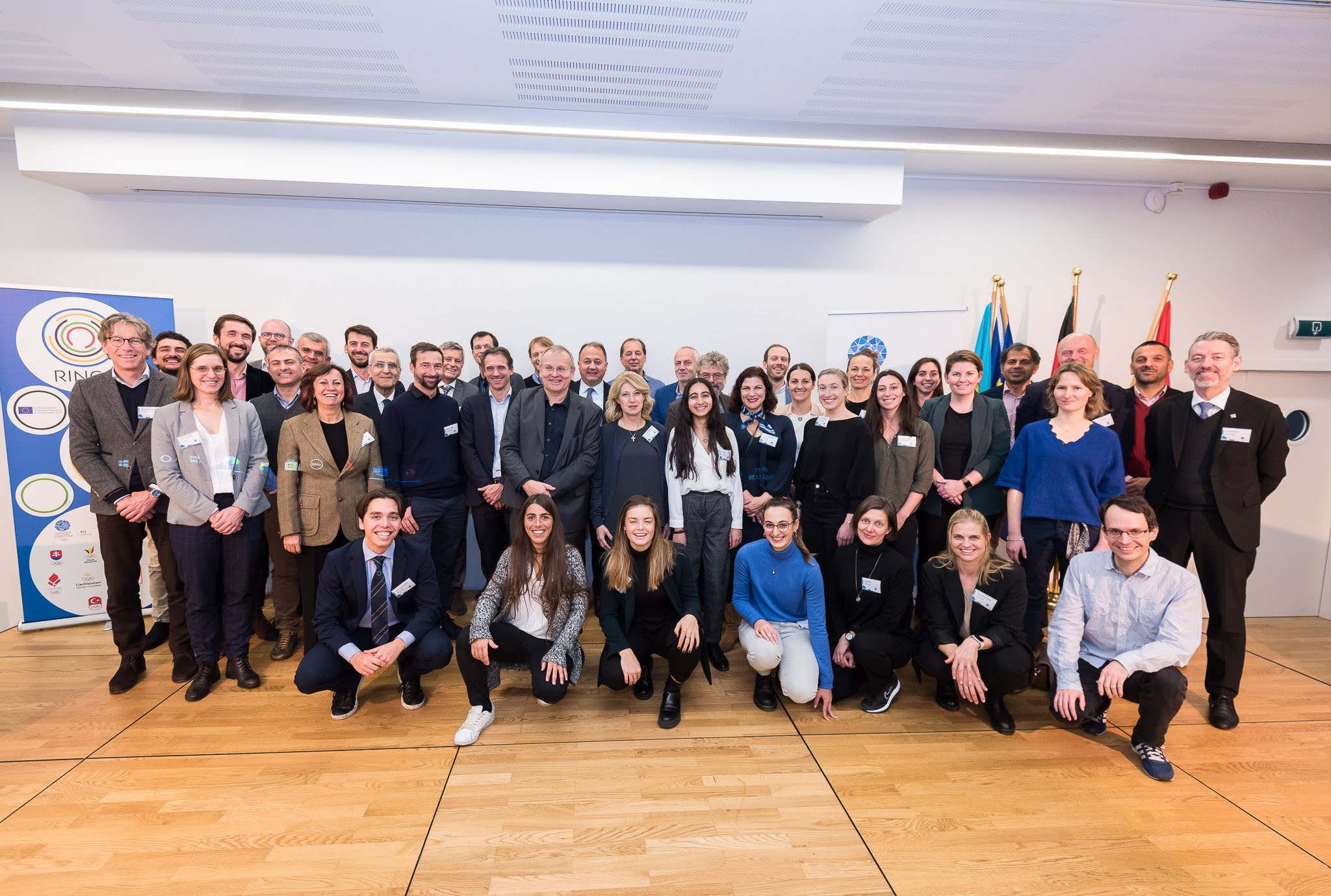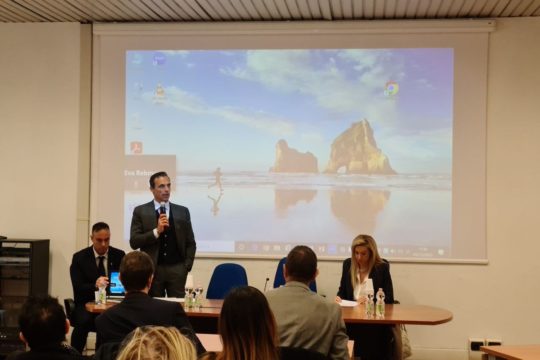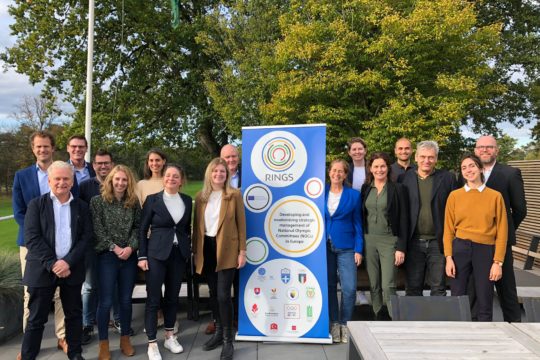The Final Conference of the RINGS project, co-funded by the European Union’s Erasmus+ programme, was held on 7 December, alongside the last meeting of the project’s partners.
The Final Partners Meeting was the occasion for a discussion among the consortium representatives (EOC EU Office, NOC Belgium, NOC Bosnia and Herzegovina, NOC Cyprus, NOC Denmark, NOC Greece, NOC Italy, NOC Liechtenstein, NOC Lithuania, NOC the Netherlands, NOC Slovakia, NOC Turkey, University of Mainz) on how to disseminate the project’s results among the Olympic world and to continue working together on the topic of strategic management.
The Final Conference provided an opportunity to recall the project’s relevance in a changing word and to highlight its deliverables, in the presence of numerous representatives of the European Commission, the European Parliament and the European Education and Culture Executive Agency (EACEA).
Former 400m Olympic runner and CEO of the Belgian NOC Cédric van Branteghem gave a keynote speech on how the principles of adaptability, proactivity, creativity were relevant to both his careers as a high-level athlete and a leader of a sport organisation.
After the introduction of the project by EOC EU Office Director Folker Hellmund, the various speakers disclosed and presented the 4 tools representing the legacy of the RINGS project.
Strategic Management Handbook
Professor Holger Preuß presented the Handbook on Strategic Management and Crisis Management of sport organisations, written by his team at the University of Mainz, with the close support of partner NOCs. In an ever-changing world in which the importance of sport is becoming more and more pronounced, Olympic committees and sports federations face new strategic challenges. The Handbook leads to purpose-driven and practical change in NOCs showing existing best practices, strategic tools, case studies, and illustrations not only as a guide but also to stimulate conversations among staff and board members, support planning and action. The goal is to ensure alignment of NOCs’ strategies with the expectations and needs of the broader national communities.
Public Affairs Guidelines
Poul Broberg, Director of Public Affairs of the NOC Denmark, explained the Public Affairs Guidelines for National Olympic Committees developed by the Danish NOC. The aim of the guidelines is to provide NOCs with the keys to understanding public affairs, influencing public authorities and representing the interests of the sports world through the correct use of communication channels.
This helps to strengthen the reputation of the organisation, its legitimacy and relations with stakeholders, and to gain skills in influencing the decision-making process thus gaining political leverage.
The Stakeholders’ Tool
Afterwards, Eva Rebmann, Acting Deputy Director of the EOC EU Office, illustrated the Stakeholders Tool developed in cooperation with the IT company Symantra. This provides sports organisations an easy-to-use tool to visualise their ecosystem and start acting with the stakeholders. After the mapping, the tool provides a customised roadmap with a personalised action list to improve the strategic governance and influence.
The Online Platform
The Online Platform represents the synthesis of the project results. It brings together on one site all the tools developed by the EOC EU Office through Erasmus+ projects. Through the toolbox, sport organisations can improve their governance, management and impact, discovering interactive instruments, good practice examples, personalised action plans and roadmaps to adapt the challenges of our time.
The two versions of the Handbook, one shorter and one complete with all bibliographical references, the Public Affairs Guidelines and the Stakeholders’ Tool are all accessible via the Online Platform.
The conference ended with testimonials by Neşe Gündoğan, Secretary General of NOC Turkey, and Beat Wachter, Secretary General of NOC Liechtenstein, partners involved in the project.
The EOC EU Office would like to thank all partners that have made this project a success. We will continue to cooperate in the field of strategic management and public affairs in the upcoming months.




